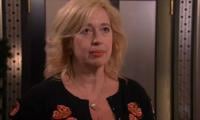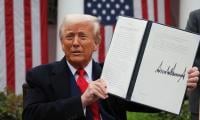Five young children and an adult are expected to be able to hear and speak for the first time in their lives after a team of leading ENT surgeons from United Kingdom and Pakistan performed six cochlear implant surgeries free of charge at the Memon Medical Institute Hospital (MMIH) during the first three days of 2019.
Cochlear implants are electronic medical devices that replace the function of the damaged inner ear. Unlike hearing aids, which make sounds louder, cochlear implants do the work of cochlea, part of the inner ear, to provide sound signals to the brain and help children born with congenital hearing loss to hear and speak again.
Most of the children with damaged cochlea are unable to speak throughout their lives as they cannot hear sounds. However, with the help of cochlear implants, which are very expensive devices and need specialised surgeries for their placement in the skull, the children are able to hear and subsequently speak.
These six cochlear implant surgeries were performed from the platform of a UK-based organisation, International Medical Relief Agency (Imra). Speaking to The News, Imra chief Dr Haroon Khan said the organisation was also working in Pakistan and the United States for the last seven to eight years.
Imra brought six cochlear implants worth $100,000 (approximately Rs14 million) from the UK. These implants were inserted in the heads of five children and an adult from Lahore during the first three days of 2019, Dr Khan said, adding that among the children were four girls and one boy.
The Imra chief explained that the team which performed the surgeries was led by one of the UK’s leading cochlear implant surgeons, Dr Naveed Ahmed, who was assisted by Dr Khan, Dr Shaukat Malik, an ENT surgeon and former president of the Pakistan Medical Association Karachi, and Dr Ausaf Khan from the MMIH.
Expected start of hearing
Dr Khan said children between two and two-and-a-half years old would not immediately start hearing after the cochlear implants. “Children would not be able to hear at least for six to seven weeks after the surgeries unless their surgical wounds are completely healed, after which these cochlear implants would be switched on,” he added.
According to the Imra chief, the electronic devices are placed behind the ear by cutting and drilling into the skull and the complete healing of surgical wounds takes six to seven weeks. It is after the healing that the devices are turned on, he said.
Dr Khan explained that the children start hearing sounds when the devices are activated; however, they require continuous rehabilitation and speech therapy for at least two years in order to hear and speak properly. Children undergoing cochlear implant surgeries need their parents’ constant support and cooperation so that they listen and speak properly and are able to attend schools like other children, he said.
What causes hearing loss?
According to experts, genetic and non-genetic causes result in congenital deafness. A gene was recently discovered by Dutch scientists which plays a role in deafness in children. The non-genetic causes of deafness include birth complications and infections during pregnancy caused by herpes, cytomegalovirus, toxoplasmosis and other infectious agents.
“Cousin marriages may be the cause of deafness among children while infections during pregnancy, meningitis and some other conditions including jaundice at the time of birth may result in hearing loss,” Dr Khan maintained.
This picture taken on January 30, 2023, shows commuters passing through the Empress Market in Pakistan's port city of...
Students give an Admission Entry Test for the Academic Session Fall 2025 in Aror University on April 13, 2025. —...
Students give a mega IT test at its PAF branch on Sharea Faisal on April 13, 2025. — Screengrab via...
Sindh Chief Secretary Sindh Asif Hyder Shah chairs a meeting on April 12, 2025. — Screengrab via...
This representational image of fishermen pull a fishing net ashore at the Clifton beach in Karachi. — AFP/FileThe...
Karachi Water & Sewerage Corporation CEO Ahmed Ali Siddiqui looks on in this image released on March 26, 2025. —...







